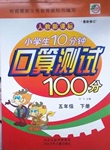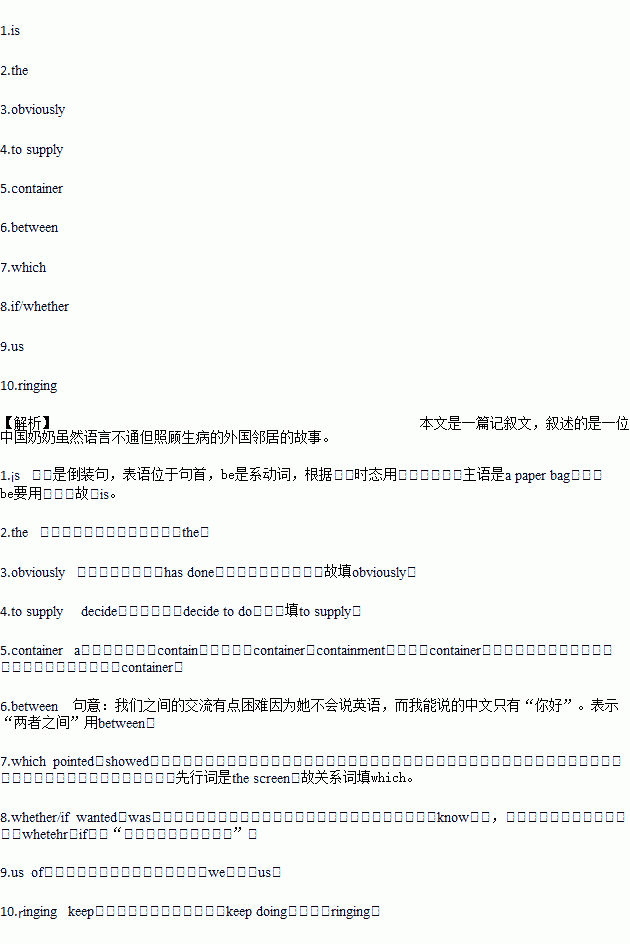题目内容
My doorbell rings at 11 am. On the step, I find an elderly Chinese lady holding the hand of a little boy. In her other hand 1.(be) a paper bag. She is the little boy’s grandmother, and her daughter, Nicole, bought 2. house next door last October. Nicole has 3.(obvious) told her mother that I am having a heart operation shortly, and the result is that her mother has decided 4.(supply) me with meals.
I know what is inside the paper bag — a bottle of hot soup and a 5.(contain) with a meal of rice, vegetables and meat. It’s become a daily occurrence.
Communication 6. us is somewhat difficult because she doesn’t speak English and all I can say in Chinese is hello. Once, she brought an iPad as well as the food. She pointed to the screen, 7.showed at message from her daughter telling me that her mother wanted to know 8. the food was all right for me.
So here we are, two grandmothers, neither of 9.(we) able to speak the other’s language but communicating one way or another (with some help from technology). The doorbell keeps 10.(ring) and there is the familiar brown paper bag, handed smilingly to me.
 小学生10分钟口算测试100分系列答案
小学生10分钟口算测试100分系列答案

 told you that he just served the last piece?It makes you as traveler or diner want to land your fist right on their unsympathetic faces.
told you that he just served the last piece?It makes you as traveler or diner want to land your fist right on their unsympathetic faces.